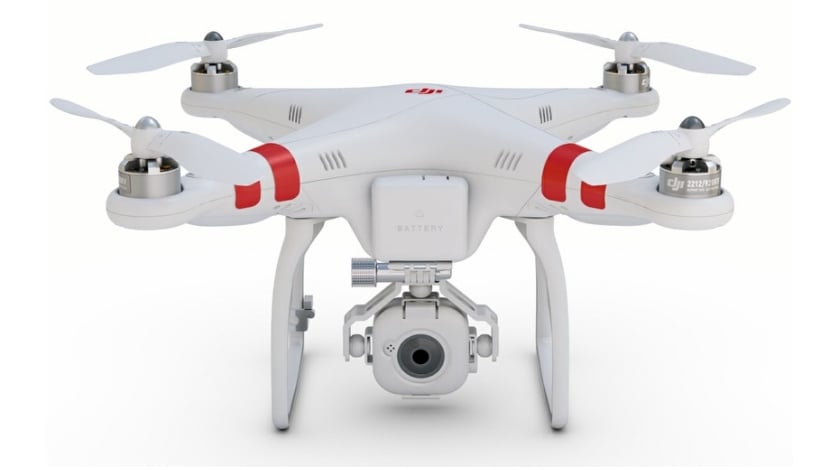Photo: dji.com
Reading Time: 3 minutesIn many ways, DJI is the Apple of the drone world.
Specifically, DJI is equivalent to Apple circa 2004 – the company’s flagship product, the iPod, had been available for a few years, a new, cheaper version (iPod mini) was rolling out, everyone either had one or knew someone who had one and the company was making more money than anyone forecasted.
Similarly, DJI’s Phantom drones have taken the world by storm. They have been on the market a few years and they release the same way Apple releases new products – annually and in tiers.
Both the iPod and the DJI Phantom share the same qualities of being the first product to capture a market they invented. They both feature sleek, simple, sexy designs but pack extraordinary complexity under the hood.
Last fall, DJI founder and CEO Frank Wang told the Wall Street Journal Steve Jobs was his role model and, if you read interviews with Wang, the influences of Jobs are apparent.
Both figures are/were overly aggressive when it comes to progress, show extreme devotion to their vision, dismiss those who would try to derail them as idiots, and refused to settle for anything less than perfection.
In other words, they’re the kind of person who builds a billion dollar company, but not the kind of person you want to hang out with at that company’s holiday party.
And the future of DJI looks strikingly similar to the progression of Apple’s renaissance.
With sales projections through the roof, there are plans to build DJI brick and mortar stores, and new products, like DJI’s agriculture drone, will try to expand the brand into new markets (as the Apple Watch tried to capture the wearables market).
Possible Pitfalls
But this is where trouble can start.
Apple stores are great but, while they admittedly exist to sell products, don’t most people go there to fix a problem with their phone/Mac or to play with the newest model rather than to actually buy anything?
In the news release for the DJI retail store in China, the company was very explicit that hands-on trials of drones will not be available.
The bigger issue though, is servicing products consumers already own.
When something goes wrong with your iPhone or iPad you Google it, right? And if Google can’t provide you with an answer or you can’t make sense of the answer it gave you, you ask the tech expert in your life for help. And if he/she can’t figure it out, the answer is always the same: “Take it to the Apple store.”
This is exactly how Phantom owners try to fix problems except their last resort is dealing with the dreaded DJI customer support – a long standing weakness in the company’s customer relations department.
A physical place to take your Phantom might be just what DJI needs, but they will also need a plan to handle the inevitable surge of service requests and a staff that can be a knowledgeable and friendly as Apple’s BlueShirts.
Building the store before revamping customer service seems a lot like putting the cart before the horse, but hopefully a reimagining of customer service is part of DJI’s plan.
Stagnation
The other risk DJI runs of following Apple’s path is the lack of innovation that matriculates from releasing a new version of your product every year.
Apple has come under a lot of scrutiny for not improving enough upon their iPhones as they have released the 4, 5, and now 6. Whether or not you agree with this assessment, the fact that the conversation is happening means people are not as impressed as they expected to be.
And, while there are some impressive new features in the Phantom 3 line, the capability of these drones are still close enough those of the Phantom 2 Vision/+ that it can be worth grabbing an older model for a cheaper price depending on the customer’s needs.
There is no game changing upgrade between the two generations.
Developing paradigm shifting technology is far from easy, but to convince customers to annually upgrade a thousand dollar product that is still fairly niche, DJI is going to have to roll out some truly impressive features.
Knowing
Apple is one of the most successful companies in the world. Following in its footsteps is hardly an inadvisable strategy, but it’s important to recognize that drones are not iPods and they are not computers.
You are not going to create a community around drones as a product. That community already exists and they are known as RC aircraft pilots.
Drones are tools that are being assimilated into existing professional communities.
The general public may be interested when a new DJI product gets announced, but you will never see a group of DJI fanboys camping out in front of the store for a week to be the first to grab the Phantom 6.
The people who really want to learn more about it, and will be the ones placing pre-orders are professional photographers, cinematographers, surveyors, infrastructure inspectors, and farmers.
It’s important DJI doesn’t lose sight of this as they continue their quest to dominate the burgeoning drone market.

